Restore Rohingya rights to citizenship
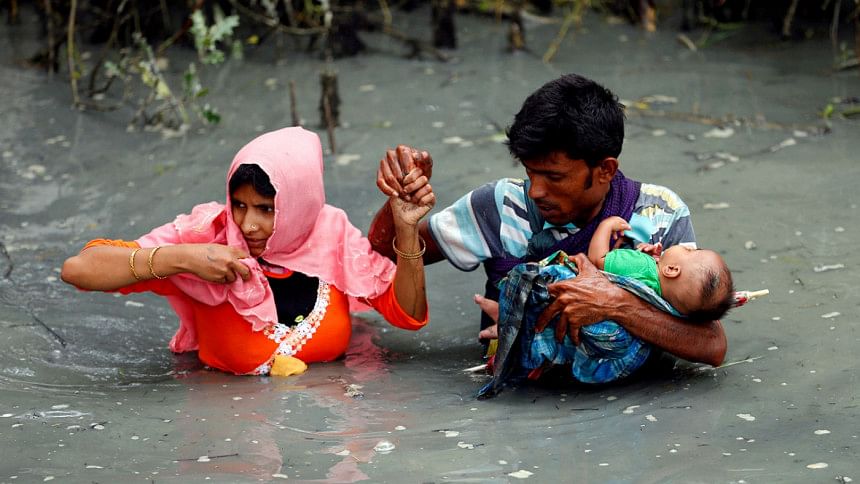
A group of UN investigators yesterday called on the Myanmar government to suspend the citizenship verification process based on the 1982 Citizenship Law and restore the citizenship rights of Rohingyas through a speedy administrative process.
They urged Myanmar to dismantle the arbitrary deprivation of nationality of the Rohingya and restore their rights to citizenship and property through a meaningful consultation with the Rohingya community.
They made the call in the full report of UN Independent International Fact-Finding Mission on Myanmar. The 440-page report was presented to UN Human Rights Council in Geneva yesterday.
The members of Fact-Finding Mission also called for ensuring safe, dignified and voluntary repatriation of Rohingya refugees in accordance with international standards.
They also stressed the need for adequate human rights protections for Rohingyas.
"The United Nations and international community must ensure that the repatriation of refugees and return of internally displaced persons only occurs when safe, voluntary and dignified, with explicit human rights protections in place, including citizenship. In the current circumstances, returns are not possible," reads the report.
A summary of the report was issued on August 27.
The Fact-Finding Mission recommended the Myanmar government remove from Rakhine all divisions, battalions and units of security forces responsible for perpetrating violations of international law before starting the repatriation of refugees, and not allowing them any role in the repatriation process or security to the returnees.
The UN investigators said the Myanmar army should be removed from politics and reiterated their call for top generals to be prosecuted for genocide, crimes against humanity and war crimes against the Rohingya Muslims.
Over 720,000 Rohingyas have fled to Bangladesh since August 25 last year escaping a brutal military crackdown in Rakhine.
The report said the Myanmar government should act without delay to re-structure the Tatmadaw (the armed forces of Myanmar) and transform its role. "That should begin with replacing the current leadership of the Tatmadaw. Through a constitutional amendment process, the Government should further pursue the removal of the Tatmadaw from Myanmar's political life."
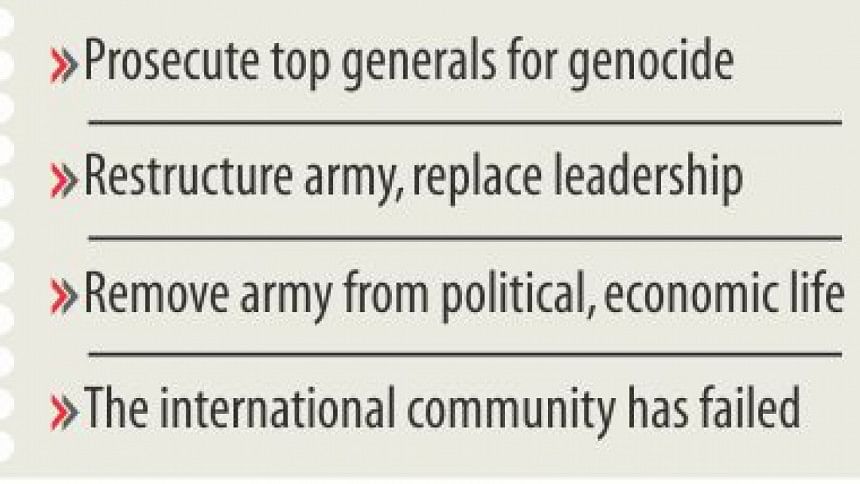
It also provided new details about the investigators' concerns about the how the UN reacted during that spasm of violence. The investigators pointed out the only statement from the UN resident coordinator's office "was to condemn the ARSA [militant group] attacks and losses suffered by the Myanmar security forces".
The report's critique of the UN focused not only on its response to the Rohingya crisis, but its efforts across Myanmar.
The investigators pointed to failings of the UN office in Myanmar, alleging that "quiet diplomacy" was prioritised. For example, the investigators noted that the UN had rolled out a Human Rights Up Front Action Plan in Myanmar, but said its "human rights driven" approach was rarely, if ever, pursued.
The UN experts said they regretted that some UN entities and staffers showed a lack of cooperation with their work, and appeared to view it as a threat, rather than a means to address the most deep rooted human rights challenges facing Myanmar. "This attitude and approach must change."
The investigators did acknowledge that some people in the country had faced "intimidation and reprisals" for their engagement with the United Nations.
"As a matter of urgency, there must be a comprehensive, independent inquiry into the United Nation's involvement in Myanmar since 2011, with a view to establishing whether everything possible to prevent or mitigate the unfolding crises was done; identifying lessons learned and good practice; making recommendations as appropriate, including on accountability; and enabling more effective work in future," the experts said.
Drawing on 875 detailed interviews conducted in locations in five countries, the report illustrates, in graphic detail, the violent modus operandi that is the hallmark of Myanmar military, known locally as the Tatmadaw operations against its own people. The Mission was struck by how similar the Tatmadaw operations and conduct were in all three states -- Rakhine, Kachin and Shan.
"During their operations the Tatmadaw has systematically targeted civilians, including women and children, committed sexual violence, voiced and promoted exclusionary and discriminatory rhetoric against minorities, and established a climate of impunity for its soldiers," said Marzuki Darusman, chair of the Fact-Finding Mission.
"We insist that the perpetrators of the gross human rights violations and international crimes, committed in Rakhine, Kachin and Shan states must not go unpunished," he insisted.
The report sets out in extensive detail its findings on the extreme violence perpetrated against the Rohingyas in Rakhine since August 25 last year, in what the Tatmadaw referred to as "clearance operations'" in 54 locations, and received first-hand accounts of additional operations in a further 22 locations.
The report includes satellite images, setting out detailed analysis that corroborates information provided by victims and witnesses. The images show the transformation of much of northern Rakhine over the past year, with at least Rohingya 392 villages razed to the ground, providing irrefutable documentation of the scale of destruction perpetrated.
"The horrors inflicted on Rohingya men, women and children during the August 2017 operations, including their indiscriminate killing, rise to the level of both war crimes and crimes against humanity", said Radhika Coomaraswamy, another member of the Mission.
"Addressing situations like that in Myanmar touches on the very purpose of the United Nations," the experts said, calling upon all competent organs and the UN agencies to step up to the task, and act with urgency.
"The international community has failed. Let us now resolve not to fail the people of Myanmar again."
MYANMAR REJECTS REPORT
Myanmar yesterday rejected the UN report, terming it "one-sided".
Kyaw Moe Tun, Myanmar representative to the UN in Geneva, told the UN Human Rights Council that the report "lacked balance, impartiality and fairness", criticising its reliance on refugee testimony and the reports of NGOs -- though the Myanmar government did not grant the UN mission access to the country.
"Not only is this report detrimental to social cohesion in Rakhine state, it also undermines the government's efforts to bring peace, national reconciliation and development to the entire nation," he said.

 For all latest news, follow The Daily Star's Google News channel.
For all latest news, follow The Daily Star's Google News channel. 

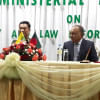
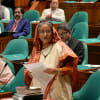
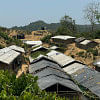

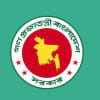


Comments